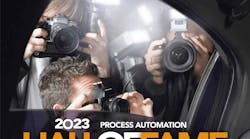Some people will tell you longevity is the key to success. While it's true that longevity is often a measure of a successful career, whether you’re an engineer, C-suite executive, actor or athlete, what you do over the course of that long career will be what ultimately sets you apart. So while Ichiro Suzuki may have played professional baseball for 28 years in two different countries, it is his 3,089 hits and career .311 batting average in Major League Baseball alone (not including his stardom in Japan) that has him on the cusp of the being enshrined in the Hall of Fame in Cooperstown, N.Y.
This month, I met three distinguished pioneers of control engineering as I put together our annual Process Automation Hall of Fame cover story. While all three can chalk up 30-plus years at the top of their field, let me tell you, it wasn’t just the years that had me wide-eyed with interest. Each one has a story that traverses many challenges and changes to process control over their careers. Each one tells how they not only overcame the evolution of the field, but embraced it as a new opportunity. Ultimately, they seized the chance to make a change themselves and left process control in a more advanced place than it was when they started.
One of the common themes they faced was the rise of computer processing in engineering. It may be hard to fathom these days, but there was a time when new-fangled computers (often as large as rooms) offered new ways of designing control systems. It reminded me a lot of today’s digitalization, where data gathering and sharing has moved to the cloud, and many companies and engineers are still getting used to it.
Perhaps even more fascinating is that, although now retired, our three inductees—Tariq Samad, formerly of Honeywell; Carlos Garcia, formerly of Shell; and W. Harmon Ray, formerly a professor of engineering a the University of Wisconsin—all found themselves working on new challenges early in their careers that engineers today still explore. One of those is artificial intelligence (AI). Another is sustainability. It’s a sober reminder that the work of engineers is a long journey that doesn’t usually have quick and simple answers. In that regard, success does require longevity, but longevity alone won’t solve the puzzles.
Like Ichiro’s 28 years in baseball, an engineering career is filled with singles and doubles, but home runs are fewer and farther between. But when you put enough work in and enough curveballs are put into play, the Hall of Fame awaits.





